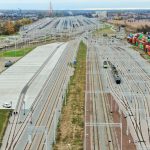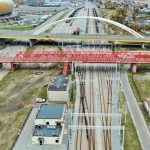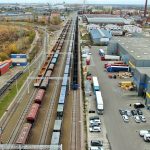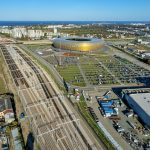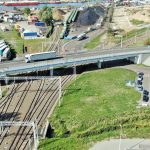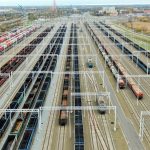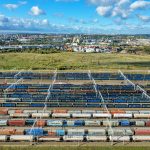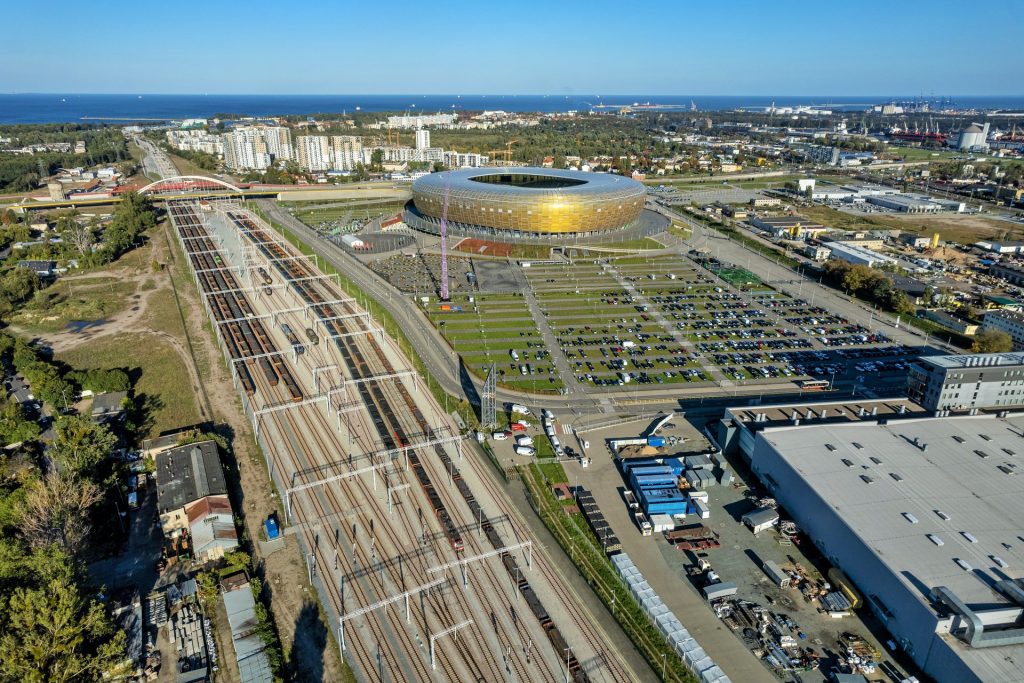 PKP Polskie Linie Kolejowe has completed the Gdansk rail access improvement project worth PLN 1.1 billion (EUR 233.6 million) which has been supported by EU funding through the Connecting Europe Facility. Under the 2015 CEF Transport call, the EU has covered 80% of the project’s total eligible costs of EUR 132.77 million, and provided a EUR 108.5 million financing.
PKP Polskie Linie Kolejowe has completed the Gdansk rail access improvement project worth PLN 1.1 billion (EUR 233.6 million) which has been supported by EU funding through the Connecting Europe Facility. Under the 2015 CEF Transport call, the EU has covered 80% of the project’s total eligible costs of EUR 132.77 million, and provided a EUR 108.5 million financing.
The modernised and expanded infrastructure allows longer and heavier trains with a length of 750 meters and an axle load of 22.5 tonnes to reach the quays.
The project included the construction and track update for 70 km of tracks, 233 turnouts and devices and three bridges, two viaducts and several culverts were rebuilt. Electrification works were carried out in the area of the Gdańsk Port Północny station, Gdańsk Kaszubski channel, Gdańsk Zaspa Towarowa together with the Gdańsk Wiślany area and along the Gdańsk Główny – Gdańsk Zaspa Towarowa and Gdańsk Zaspa Towarowa – Gdańsk Wiślany lines.
On the 17 km Pruszcz Gdański – Gdańsk Port Północny railway line and on the 3 km Gdańsk Południowy – Gdańsk Olszynka section, the ERTMS/ETCS system has been installed.
Efficient and safe rail and road communication was ensured by the construction of a road viaduct along Towarowa road which was used since December 2021.
The extension of the Local Control Centre at Gdańsk Port Północny station and the construction of the signal box at the Gdańsk Zaspa Towarowa station, equipped with new computer devices and telecommunications systems, ensured efficient and safe operation of train traffic.
In 2019, the consortium of Torpol and Intercor won two PLN 1.15 billion (EUR 244.25 million, in current prices) contracts for the rail infrastructure at the Port of Gdańsk.
Gdansk rail access improvement project makes possible the transport of increased volumes and efficient services without impact on the environment. This will reduce the CO2 emissions and the number of trucks on the road.
“Congratulations to PKP Polskie Linie Kolejowe for the implementation of this strategic investment, which allows for more efficient transport of goods to the port by rail, which is an ecological means of transport. This effect was achieved by significantly increasing capacity and improving traffic flow on the Baltic-Adriatic Corridor. This is an effective use of EU funds,” Morten Jensen, Head of Unit at CINEA said.
This project started at the same time with the rail access improvement programme at the Port of Gdynia which also received EUR 162.2 million CEF funding of the total eligible costs of EUR 190.86 million. In 2019, a EUR 361 million contract was awarded to Budimex to implement the works. This project includes reconstruction and electrification of the existing infrastructure, the replacement of 356 turnouts and the construction of two rail viaducts and improvement for 13 km of road infrastructure. At Gdynia Port station the project covers the modernisation of 115 km of tracks and replacement of 65 km of tracks and 170 turnouts and the access to the port gates will be electrified. The project include the construction of a Local Control Centre building two railway control rooms, a PKP Cargo office building and an overhaul of three existing control rooms. The facilities are to be equipped with new and modern systems and devices to provide efficient and safe transport activities, while increasing the number of freight trains.
In August 2022, Budimex commissioned the P1 Switching District for use as part of the contract. The completed works have significantly improved access to the port quays, which is crucial for improving rail transport in the Port of Gdynia. The main objective of the project is to improve the capacity of strategic railway junction and increase the freight volume. Budimex will complete the project including the certifications and acceptance in August 2023.
The two projects are part of PLK’s programme to increase access and cargo transport to the Tri-City seaports by reconstructing the infrastructure, electrifying the rail sections and install new signalling and control systems. In September 2019, the Polish rail infrastructure manager has started the prorjects at the two ports totalling PLN 2.6 billion (EUR 552.2 million in current prices).
Share on:





